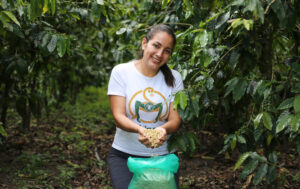Right now, we’re seeing companies pull back from ESG. Some of this reflects today’s evolving political landscape, but there’s a deeper issue at play: for many, sustainability efforts still feel distant from their everyday realities.
Above all, people care about their everyday lives getting better. Prioritising “sustainability” over “development” fuels inequality and risks overall progress towards the UN Sustainable Development Goals (SDG).
Growing up in the Philippines, I recall having my school lessons under mango trees after typhoons blew away my classroom. Years later, those same storms are growing stronger, and the communities facing them are still among the most vulnerable. For many people in low- and middle-income countries, climate resilience and sustainable infrastructure are survival essentials for development.
Sustainability is part of eliminating poverty, improving health and livelihoods – those are the ultimate goals. If it becomes disconnected from human outcomes like safety, living wage and social mobility, it loses its purpose.
Overlooking “development” in the UN Sustainable Development Goals (SDG) is a fuel for inequality, a top ten risk identified by World Economic Forum’s Global Risk Report. We must bring “development” back into the UN SDG conversations.
Companies have enormous influence over whether the SDGs succeed or fail. While business disclosure on SDG progress has improved over the past years, we need to bring the focus back to people. We are bombarded by sustainability data from companies. But despite the wealth of data, there is still a gap in how companies assess their progress as they often overlook their impact on people.
Earlier this year, the World Benchmarking Alliance (WBA) updated the SDG2000 – a list of the world’s 2,000 most influential companies. Collectively, the 2,000 companies directly employ 99 million people, and hundreds of millions more through their supply chains. The companies serve billions of consumers daily and have collective revenues of $48 trillion, equivalent to 46% of global GDP. Despite their enormous footprint across the world, they’re not doing enough to allow sustainable development.
For example, among urban companies across real estate, construction, transport, energy, waste, and water management sectors, WBA’s Urban Benchmark found that many companies operating in high-risk urban areas are poorly prepared for natural disasters. Over 60% fail to conduct proper risk assessments and 69% do not disclosing emergency plans. This lack of preparedness leaves people vulnerable to loss of lives and properties, further impeding the economic development of disaster-prone regions.
That lack of planning doesn’t just threaten infrastructure. It threatens lives and perpetuates cycles of economic insecurity. The good news? Data also points to what works.
From the same benchmark, we found that companies that actively engage with affected stakeholders such as workers, local communities, vulnerable groups, consistently perform better across every development indicator we assess from human rights commitments to occupational health and gender equality.
Now more than ever, we need wisdom and understanding of “sustainability data” and how does that link with the development of our society. We need to know what it tells us – why some companies are leading and why some are lagging behind. Data is crucial for identifying solutions to these pain points.
As company progress on ESG enters a more contested phase, it’s time to reframe the conversation. Companies need to stop treating sustainability as an end in itself and start treating it as a tool for inclusive, equitable development.
It’s a strategic one – for companies, for investors, and for those of us working to deliver on the promise of the SDGs.
If we want a sustainable future, we have to make sure it’s a future people can thrive in.









